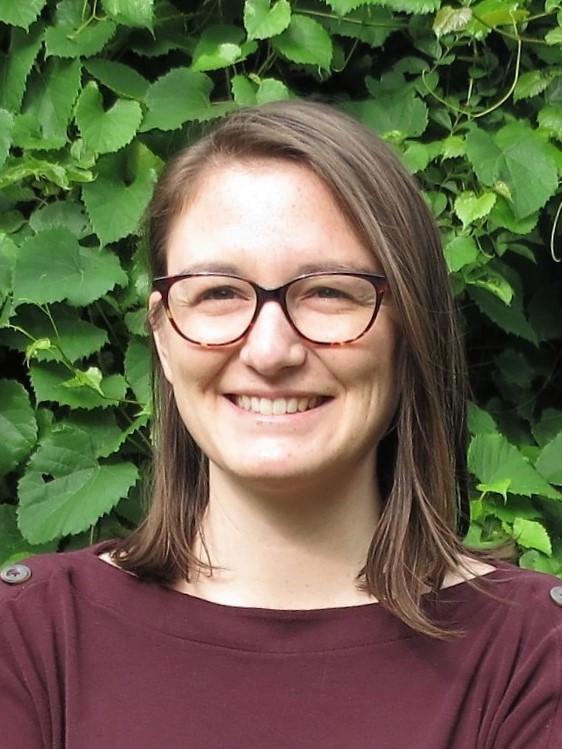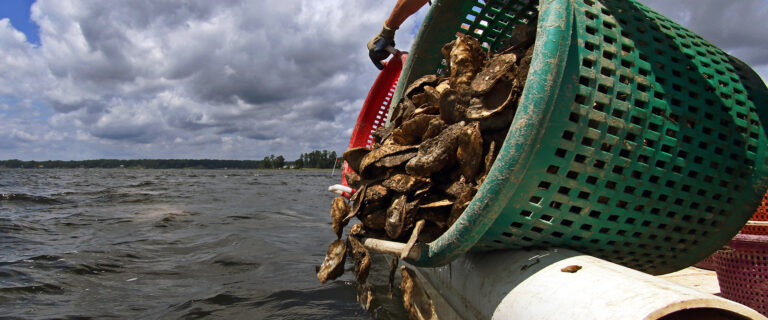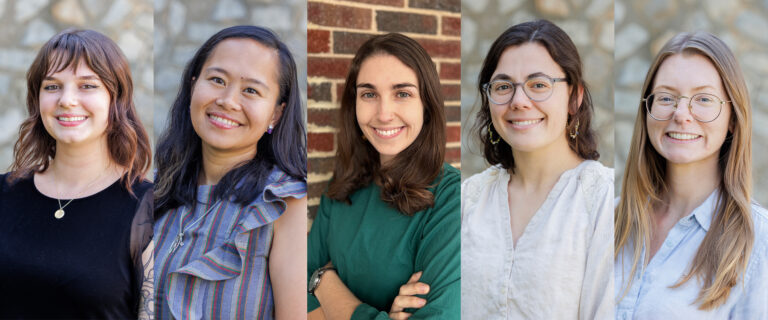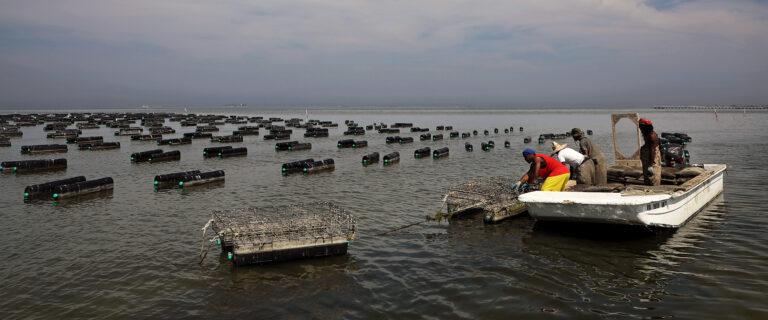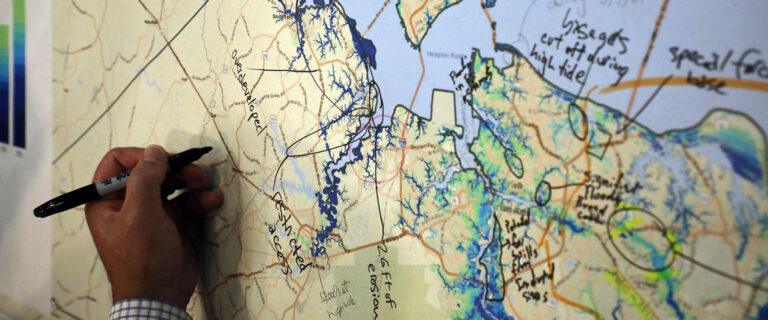Above left to right: Marcella Dobbertin da Costa, Kody Muhic, Linnea Saby, Kaitlyn Theberge
2023 Knauss Fellowship Finalists Announced
Four Virginia students have been chosen as finalists for Sea Grant’s prestigious 2023 John A. Knauss Marine Policy Fellowship program. They will join more than 1,550 Knauss alumni who have completed the program, named for one of Sea Grant’s founders and former National Oceanic and Atmospheric Administration (NOAA) administrator, to become leaders in science, policy, and public administration. The current class of 2023 Knauss finalists, 86 early career professionals, is an impressive group with diverse backgrounds and interests.
“We’re excited to welcome these Knauss Finalists into Virginia Sea Grant’s ever-growing network of fellows and alumni,” said Troy Hartley, director of Virginia Sea Grant. “The opportunities offered through this cohort, coupled with VASG’s professional development training, will provide a lifetime of growth and career advantages.”
The John A. Knauss Marine Policy Fellowship is a unique opportunity for graduate students to expand their educational and professional experience with national marine policy at the federal level in Washington, D.C. Knauss finalists are chosen through a competitive process that includes several rounds of review. This fall, the finalists will participate in virtual interviews with several executive or legislative host offices. Following placement, they will begin their fellowship in February 2023.
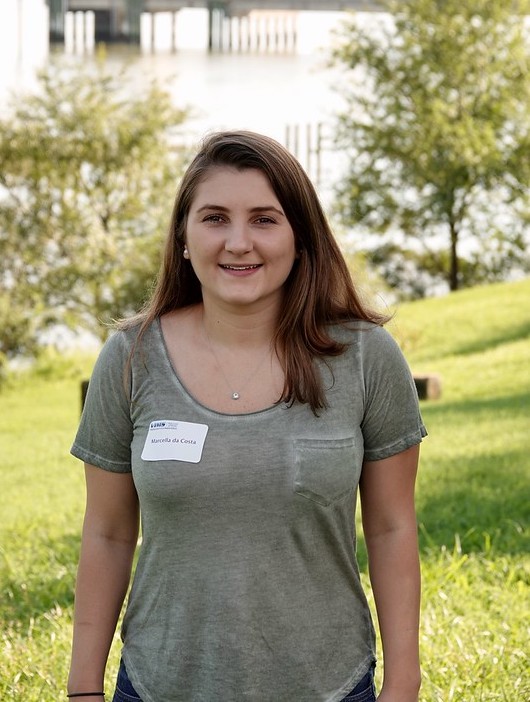
Marcella Dobbertin da Costa graduated from St. Augustine’s University with a bachelor of science degree in biology. She is currently a master’s student at the Virginia Institute of Marine Science, where she studies phytoplankton in the York River and collaborates with the Virginia Department of Health to learn how her research relates to environmental policy. She gained an interest in marine science through a summer internship at Woods Hole Oceanographic Institute, where she trained community volunteers to analyze phytoplankton at the Waquoit Bay National Estuarine Research Reserve. Her appreciation for environmental research and policy was strengthened after she saw how harmful algal blooms impacted local fishers in the Brazilian state where she grew up.
Kody Muhic graduated from Belmont University with a bachelor of science degree in biology, and is earning a master’s degree in the Biological Sciences Department at Old Dominion University, where he studies human impacts on watersheds by measuring the invertebrates living in the bottom of urban waterways. Through his professional experiences, he has surveyed federally threatened waterbirds in Virginia, monitored rare plant and animal species in Tennessee, and conducted collaborative research in Costa Rica. Muhic gained an appreciation for coastal ecosystems while growing up on Virginia’s Eastern Shore.
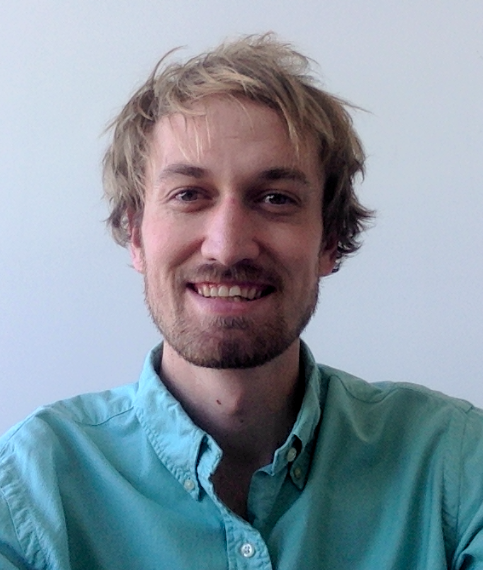
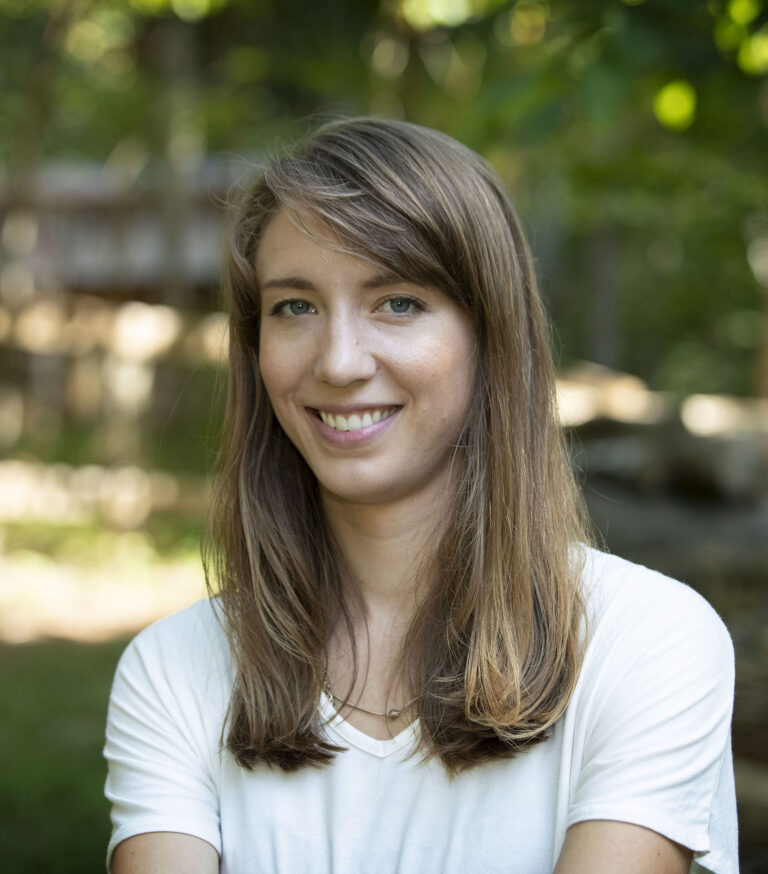
Linnea Saby graduated from Guilford College with a bachelor of arts degree in Environmental Studies and earned a master’s of civil engineering at the University of Virginia (UVA). She is currently pursuing her Ph.D. in civil engineering at UVA, where her research evaluates the effectiveness of water quality trading policies. She is a founder and president of the Virginia Scientist-Community Interface, a coalition of scientists that provides expertise for community-led advocacy and is director of the Science Policy Initiative at UVA.
Kaitlyn Theberge graduated from Bowdoin College with a bachelor of arts degree in Environmental Science and French. She is currently earning a master’s degree in fish and wildlife conservation science from Virginia Tech. During internships in Maine and Madagascar, she gained an appreciation for how policy decisions affected fishing communities, and how incorporating local knowledge into research design could lead to better policy. She also has experience working on an oyster farm, teaching English in France, and leading an afterschool outdoors program through AmeriCorps.
